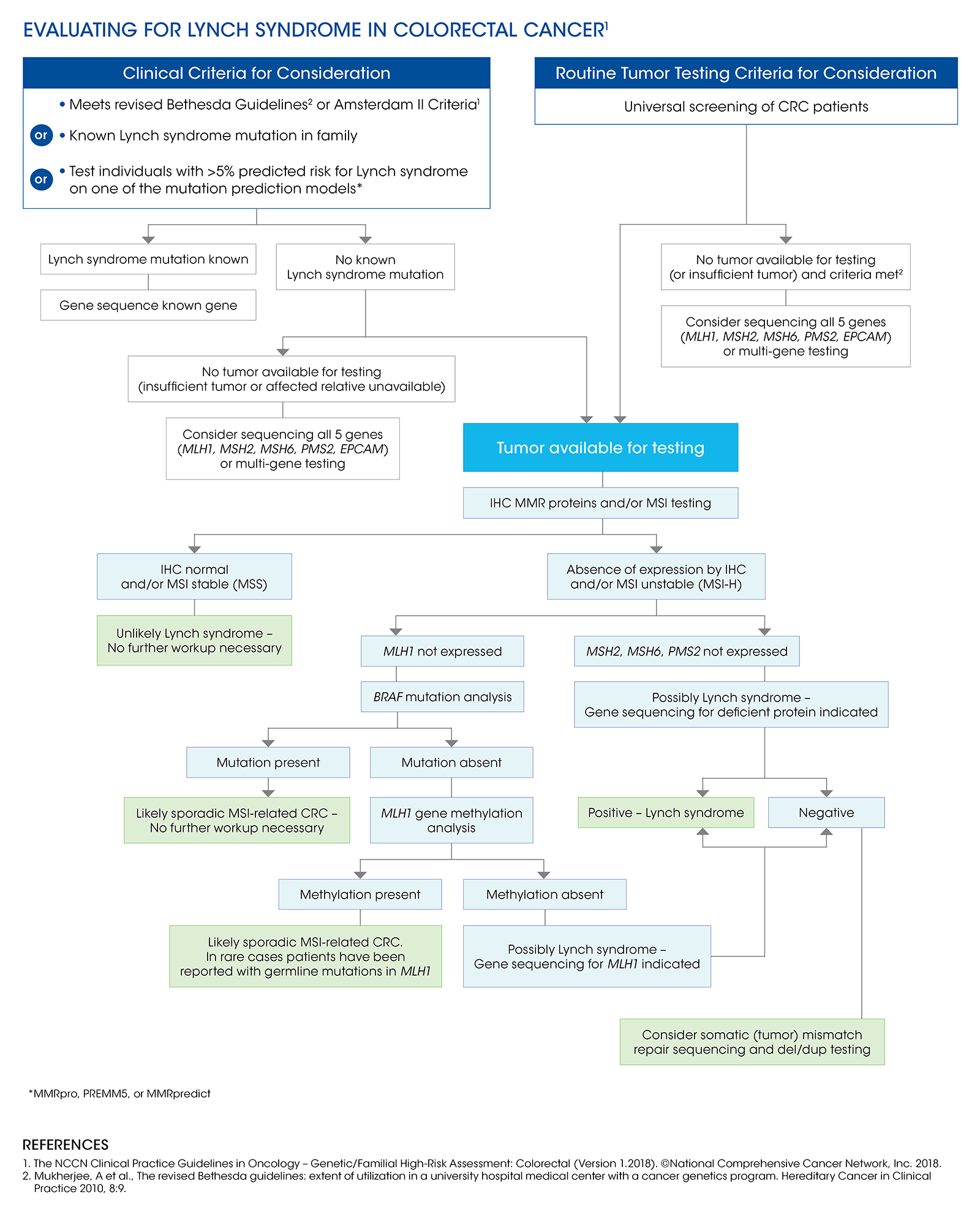- Cancer Care Team
Cancer Care Team
To deliver optimal patient outcomesProducts and Services
Cancer Type
Supplies & Tools
Scientific Focus
- Biopharma Partners
- Patients
- Education & Events
- Login
- Contact Us
Lynch Syndrome is the Most Common Cause of Hereditary Colorectal Cancer
Lynch syndrome (LS), an autosomal dominant familial cancer syndrome, is caused by inherited mutations in five genes (MLH1, MSH2, MSH6, PMS2, and EPCAM) that disrupt the mismatch repair (MMR) pathway. This disruption causes microsatellite instability (MSI) that may lead to oncogenesis.1,2
Epidemiology and Clinical Features
- Lynch syndrome is a genetic condition that accounts for about 3% of all colorectal cancer (CRC) cases and is associated with increased risk of gastric, brain, upper urinary tract, and endometrial cancer in women.1,2
- Not all microsatellite instability is associated with Lynch syndrome. 12%-15% is categorized as non-hereditary (sporadic) CRC.1
- Lynch syndrome, also known as hereditary non-polyposis colorectal cancer (HNPCC), is associated with a 52%-82% lifetime risk of developing CRC and often presents at an early age of onset (mean age at diagnosis 44-61).2
- Females have a 25%-60% lifetime risk of endometrial cancer (EC) and it often presents at an early age of onset (mean age at diagnosis 48-62).2
- Every individual diagnosed with Lynch syndrome, on average, will have three relatives with Lynch syndrome.4
Diagnostic Approach Based on NCCN Guidelines®



